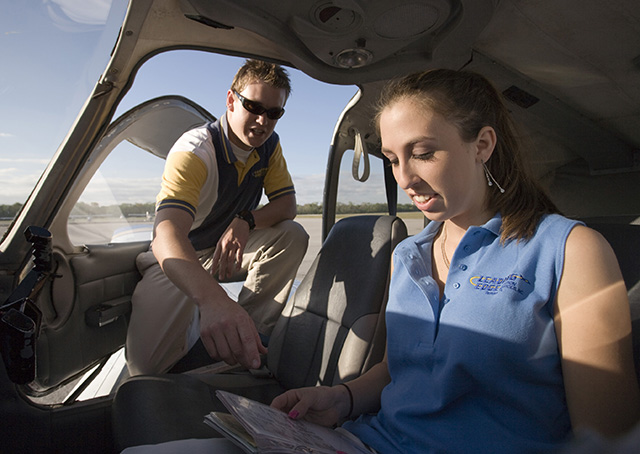
A new approach to pilot certification and testing is coming together with help from AOPA and industry experts, putting the FAA on track to meet a June 2016 goal of transitioning to the updated system for those seeking an airplane private pilot certificate or instrument rating.
AOPA chairs the current Aviation Rulemaking Advisory Committee’s Airman Certification System working group, the final stage of a multi-year, industry-led effort to make the certification and testing process more relevant and meaningful to modern pilots.
“Revamping the testing and certification system has been a massive undertaking, but one that’s well worthwhile,” said David Oord, AOPA vice president of regulatory affairs and chairman of the working group. “Over time, the existing system has become dated. Taking the knowledge test should require a real understanding and comprehension of the information required and how it can affect your flying, rather than memorizing facts and answers to sample questions. The updated system addresses those problems and is designed to adapt as technology and the flying environment change. The new system also directly links both the knowledge and practical exams.”
Beginning in mid-June, the FAA plans to transition away from the current practical test standards (PTS) to the new airman certification standards (ACS) for private pilot-airplane and instrument rating-airplane applicants. To prepare for the transition, the FAA is providing information on its website as various elements of the testing and certification program are revised. Among the items now available are draft standards for the private pilot certificate and instrument rating, a briefing about the new standards, answers to frequently asked questions, an informational brochure, and a document called “What’s new and upcoming in airman testing,” which was updated this month.
“Knowledge tests and practical tests will still require pilots to demonstrate that they have assimilated the information and skills needed to pilot an airplane,” Oord said. “The real difference between the old approach and new one is that the requirements will be set out clearly from the start so applicants can integrate that information into every aspect of their training and preparation.”
The FAA has already tested the new standards in both Florida and Washington state and found them to be comparable to existing standards in terms of difficulty, time, and information required. The new standards do delete some topics, particularly those related to outdated or little-used technologies and discontinued products. Among the topics that have been eliminated in the new ACS and current tests are ADF/NDB operations, world aeronautical charts, and questions about the height of blowing sand. Questions about flight plans also have been temporarily removed. They will be updated to reflect the FAA’s discontinuation of the domestic flight planning form in favor of the form used by the International Civil Aviation Organization, a transition scheduled to take place in October.



